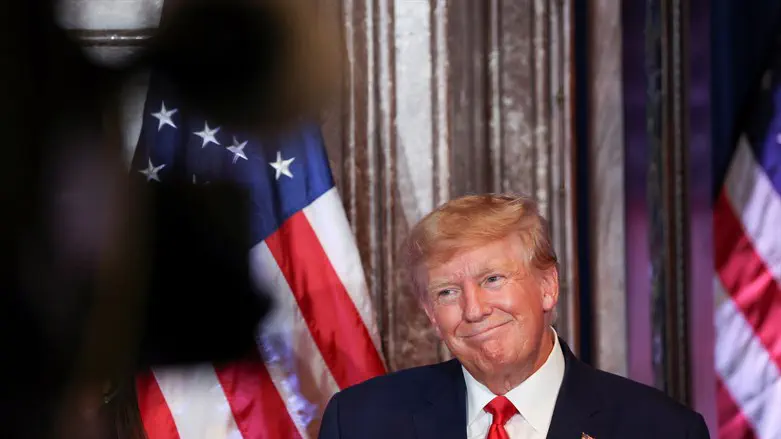
Former federal prosecutor Mark Pomerantz has written a new book in which he presents the case that the Manhattan District Attorney should have charged former President Donald Trump with several crimes relating to his financial dealings.
Pomerantz, who assisted the Manhattan District Attorney's office in its investigation into Trump's finances from December 2020 until he left the case in February 2022, had been in private practice for a long time before taking the position.
He was originally hired by DA Cyrus Vance but left the job after new DA Alvin Bragg decided not to continue with charges against Trump. He called Bragg's decision a "grave failure of justice," according to NPR.
In an interview with NPR about his new book, People vs. Donald Trump, the former prosecutor remarked on his involvement in investigating the financial statements of Trump and of many Trump business associates.
"It had to be done. I thought it was important. I thought it was essential, no matter who did the work in the first instance, that I had to understand the details," he said. "And as I got into it, I just kept being drawn further into it. I spent hours and hours and hours studying the financial statements, the accounting records and backup for the valuations that were reflected on the financial statements. And every time I spent an hour looking at that, more things would emerge."
He gave the example of Trump's penthouse on top of Trump Tower in Manhattan.
"In the years 2015 and 2016, the value he assigned to that apartment for financial statement purposes was $327 million. And he reached that, among other things, by saying, well, this apartment contains 30,000 square feet. And let's put aside for the moment the price per square foot that was used, although that was inflated as well. But the notion that the apartment should be valued on the basis that it contains 30,000 square feet fell apart when it became clear the apartment doesn't have 30,000 square feet, it has 11,000 square feet... So for financial statement purposes, the value of the apartment was tripled by simply saying it had 30,000 square feet when it didn't. The value of the apartment was vastly overstated."
He also mentioned Trump's golf course in Jupiter, Florida, purchased in 2013 for $5 million.
"It was valued as of June 30, 2014 – so that's about seven months later – it was valued in connection with his financial statements at over $60 million," he said. "He had bought the golf course only a few months earlier and had paid $5 million in cash. So how do you get from $5 million to $62 million when no substantial changes or building or redesign or anything much had happened to the golf course in the several months between when he bought it and when it was valued on his financial statements?"
Pomerantz charged that "what emerged from the investigation was that the financial statements were used in a variety of contexts. But the one context in which they were used that most directly led to criminal liability was the fact that the statements were given to banks in connection with applications for loans, in connection with a loan that the Trump Organization got to purchase the Doral Golf Resort near Miami, in connection with the creation of a luxury hotel at the old post office property in Washington, D.C., and a refinancing of Trump's property in Chicago."
"In each case, The Trump Organization asked for financing in the amount of millions - hundreds of millions of dollars. And in each case, the bank required that Donald Trump personally guarantee the loans," he added.
"The bank required as a condition of making the loan and accepting the guarantee that Donald Trump verify that the financial statements he supplied to the bank were true and accurate in all material respects and that they accurately reflected his financial condition. And they didn't. They overstated his net worth. They overstated the value of his assets by literally billions of dollars."
